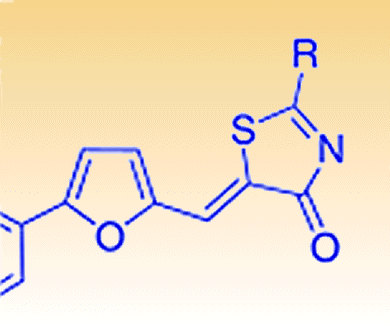HIV-1 integrase (IN) is an essential enzyme for HIV-1 replication and is an interesting target for the development of new drugs against AIDS. However, viral strains resistant to IN-blocking drugs in current use have already begun to emerge, and so the development of new IN inhibitors is required.
An international research collaboration led by Maurizio Botta, University of Siena, Italy, has resulted in the design, synthesis, and evaluation of a new series of HIV-1 IN inhibitors. The compounds were synthesized by three versatile and practical microwave-assisted strategies and are able to inhibit the replication of MT-4 cells at low micromolar concentrations, indicating their suitability as scaffolds for further optimization. The new derivatives were also investigated computationally to analyze their binding mode within the DNA binding site of IN. These results set the foundation for the development of a new generation of HIV-1 IN inhibitors.

Images: (c) Wiley-VCH
- A Versatile and Practical Synthesis toward the Development of Novel HIV-1 Integrase Inhibitors
M. Rinaldi, C. Tintori, L. Franchi, G. Vignaroli, A. Innitzer, S. Massa, J. A. Esté, E. Gonzalo, F. Christ, Z. Debyser, M. Botta,
ChemMedChem 2011, 6(02).
DOI: 10.1002/cmdc.201000510




